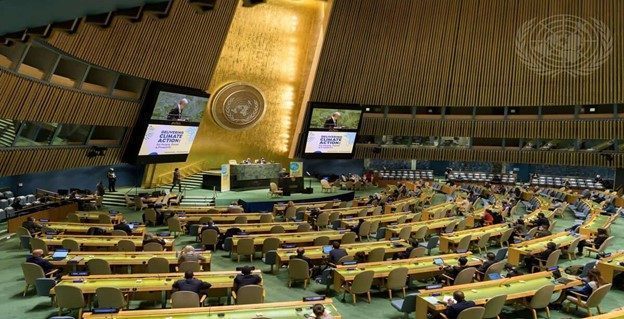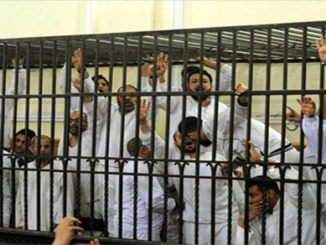
In a most recent statement, the Working Group on Egypt said commenting on Egypt’s likely hosting of COP27, “Having Egypt host this conference will confer unacceptable legitimacy on a government that serially violates norms of good governance, human rights, and environmental protection.”
The Working Group on Egypt is a bipartisan group of foreign affairs experts formed in 2010 to advocate for more principled U.S. policies toward Egypt.
“As members of the Working Group on Egypt, we are surprised and dismayed by the selection of Egypt to host the United Nations’ 2022 Climate Change Conference, also known as the 27th Conference of Parties or COP 27,” the statement read, adding:
“Egypt’s brutal authoritarian rule, abysmal human rights record, and poor environmental performance render it absolutely the wrong choice to convene this important global gathering.”
The statement also stressed that a “serious progress on climate change will only be possible with consistent government commitment, effective civil society engagement, and an accountable, rules-based environment for public policies to take effect. Egypt has shown that it is actively opposed to all of these.”
However, the statement issued by The Working Group on Egypt emphasized that under the military-backed regime of Egypt’s Abdel Fattah al-Sisi, the country is “one of the world’s worst human rights abusers, with tens of thousands of political prisoners.”
The statement also said “Egypt denies its citizens basic rights, suppresses public participation, and harshly punishes criticism of the government, including through the systematic use of state violence. There are credible reports of political detainees suffering torture, overcrowding, denial of medical care, and death in custody.”
“The state routinely uses enforced disappearances and extrajudicial killings against perceived opponents. The media and civil society are under tight state control. On the environmental front, authorities have targeted trade unions and civil society organizations involved in environmental justice work. Al-Sisi’s government cannot act as a responsible shepherd of the environment when it silences the very voices advocating for reform,” the statement added.
The working group’s statement quoted a coalition of Egyptian and international human rights groups as having recently written, “In the absence of the rule of law, spread of corruption, and a military-led economy, all of which are present in Egypt, those most affected by the ramifications of climate change will have no say in how to address these increasingly difficult challenges. Countries that host the COP 27 should be exemplars of commitments to an ecosystem of climate change advocacy, not brutal authoritarianism.”
The WGE’s statement added that “Egypt’s environmental policies are not a model to showcase. The government has been slow to act on the climate crisis despite dire predictions that global warming will leave some populated regions of Egypt underwater, decimate the water supply, and wreak havoc on agriculture. Egyptians also suffer from water and air pollution and the razing of green spaces to make room for the president’s vanity projects, among other serious environmental problems.”
“For all these reasons,” the statement continued, “al-Sisi’s Egypt is the antithesis of an appropriate venue for COP 27. Indeed, having Egypt host this conference will confer unacceptable legitimacy on a government that serially violates norms of good governance, human rights, and environmental protection. Furthermore, it will signal that politics, not human rights or environmental commitments, rules in COP 27.”
In conclusion, the statement read, ”As for the United States, the Biden administration’s apparent acceptance of Egypt as the COP 27 venue is deeply regrettable as it runs directly counter to its commitment to “center” U.S. foreign policy around human rights and democracy.”
It added, “ The United States should not support Egypt as the host of COP 27 or other major international gatherings until and unless there are major improvements in the government’s human rights practices and treatment of civil society.”
The statement of The Working Group on Egypt was issued on 4 November 2021, and signed by Amy Hawthorne (chair), Project on Middle East Democracy; Elliott Abrams, Council on Foreign Relations; Nicole Bibbins Sedaca, Freedom House; Thomas Carothers, Carnegie Endowment for International Peace; Larry Diamond, Stanford University; Michele Dunne, Carnegie Endowment for International Peace; Eric Edelman, Johns Hopkins University; Reuel Marc Gerecht, Foundation for Defense of Democracies; Neil Hicks, Cairo Institute for Human Rights Studies; Thomas Hill, former staff member, House Committee on Foreign Affairs; Elisa Massimino, Georgetown University; Stephen McInerney, Project on Middle East Democracy; Michael Posner, New York University; Mai El-Sadany, The Tahrir Institute for Middle East Policy, Kori Schake, American Enterprise Institute; and Kenneth Wollack, National Endowment for Democracy.



